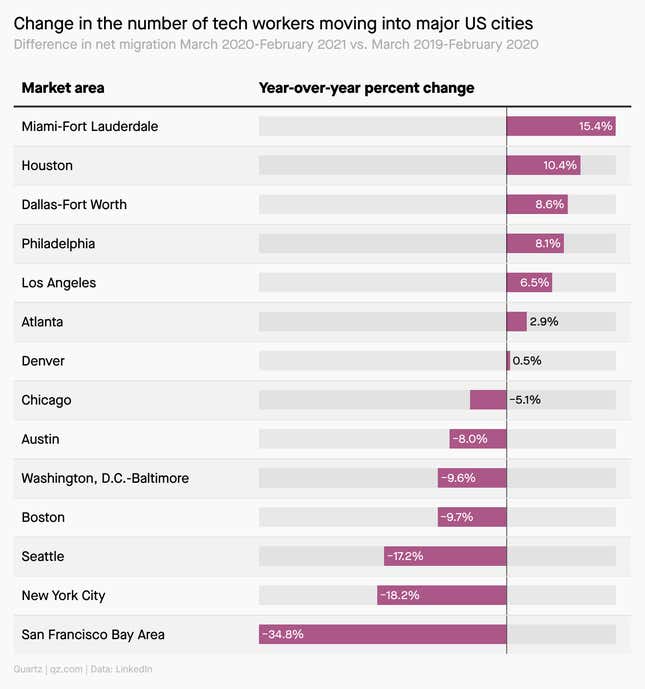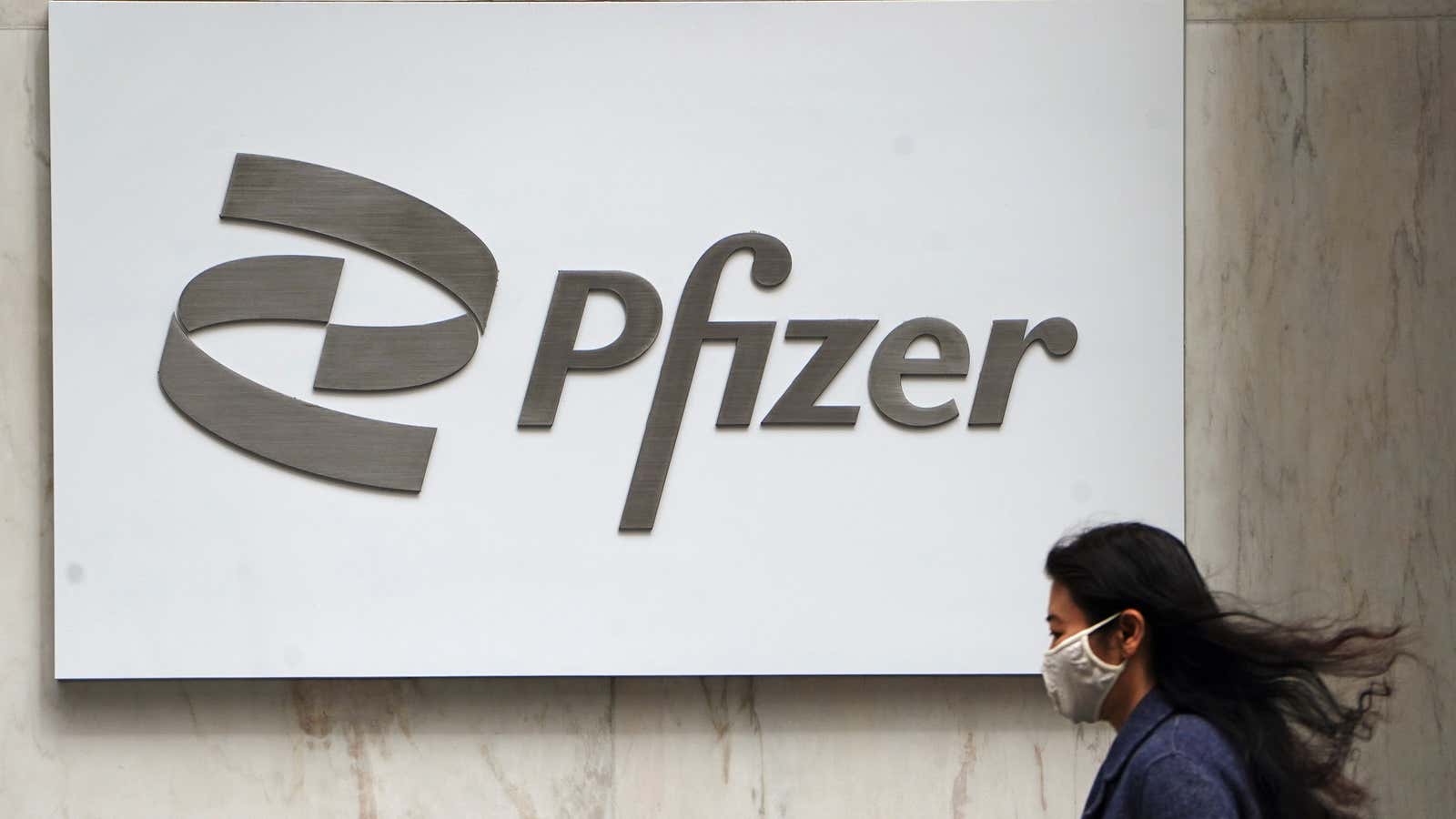Hi Quartz readers,
As the world gathers intel on the omicron variant, Pfizer has good news: Early evidence indicates three doses of its vaccine show a lot more protection against omicron than two. For wealthy countries with large vaccine supplies, this could be a serious relief: In the US, about a quarter of fully vaccinated individuals have received a booster; in European countries, about 14% of the total population has.
But there is one problem: We have to take Pfizer’s word for it.
Pfizer’s tests were conducted in a lab, so it’s hard to tell whether the results would be the same under real-life conditions, and there hasn’t been an independent review of its findings. Yet the company’s claim quickly made headlines, with little mention of the caveats.
This tendency—to give covid drugmakers’ claims about their products as much credence as independent reviews—has become something of a pattern. Be it the overall efficacy of the vaccine, its fitness for children, or the necessity of a booster dose, announcements about drugmakers’ internal trials have been met with a troubling lack of skepticism. Often, the results are given such prominence in the press that any subsequent authorizations by the FDA and CDC seem like rubber stamps.
As a publicly traded company, Pfizer has an obligation to share material information, such as the results of an internal study, that could be market-moving. But while internal test results could well be accurate, independent reviews without the same biases might yield different outcomes. This happened, for instance, with Merck’s antiviral pill for covid-19, which was found to be far less effective than the company had announced.
There isn’t an easy way out of this. On the one hand, there is an imperative to share more information. On the other, a constant barrage of contradictory information can erode trust, and provide ammunition to those willing to discredit public health authorities. The only antidote is to provide as much context as possible, early and often.
Talking points
📉 US wage gains are being erased by inflation. American workers saw average hourly earnings climb nearly 5% in November over last year, but the average price of consumer goods rose by 0.8%.
💉 India’s vaccine giant threatened to chop production. After months of battling shortages and prioritizing domestic demand over international deadlines, Serum Institute of India says supply is now too high.
☑️ Africa’s largest telco is mandating shots. South Africa-based MTN will require all employees get vaccinated or risk dismissal, signaling a shift in how big companies handle the pandemic.
📆 Europe sent Nigeria near-expired doses. Rich countries continue to hoard vaccines, limiting global redistribution efforts to leftover doses that often arrive too late to be useful.
🤔 How to calculate your covid risk. Humans assess risk in two main ways: emotionally and analytically. The pandemic is almost perfectly designed to short-wire both.
🗣️ Finding a good therapist can be exhausting. You have to apply the right filters and ask the right questions to ultimately reap the rewards. Here’s how to navigate the process.
✦ What process won’t exhaust you? Becoming a Quartz member. To get weekly forecasts and how-to directly in your inbox—and enjoy Quartz without paywalls—try membership for free.
Welcome to Miami
Since the pandemic kicked off, a wave of tech reporters and Silicon Valley transplants have descended on South Florida, and venture capital investment in Miami is trending up. Two local startups, fintech firm Pipe and senior care startup Papa, reached billion-dollar unicorn status. Financial titans from Blackstone to Citadel and venture capital firms from the Founders Fund to Palm Drive Capital announced plans to open offices in trendy Miami neighborhoods.
The conventional wisdom around Miami’s tech scene is that it’s the invention of a bunch of tech bro tourists who traipsed into the city during the pandemic to summon a startup hub out of thin air. But the truth is that it’s the culmination of years of work by local entrepreneurs, who have boosted the city’s legitimacy as a startup hub in the eyes of investors. The question is whether the boom can last.

We will party hard
“Even though virtual parties kind of suck, it’s a moment where companies need to be fighting tooth and nail to connect people. And the holiday party is such a perfect way to do it.” —Andy Challenger, senior vice president of employment consultancy firm Challenger, Gray, & Christmas
Amid all this uncertainty, it’s no wonder one in five HR executives at US companies still weren’t sure about holiday festivities when Challenger surveyed them a few months ago. About 27% said they were planning on in-person parties, while 7% were opting for virtual festivities. Another 35% threw up their hands and said they weren’t going to have a holiday party at all. But wait! That last group is making a strategic mistake.
Elsewhere on Quartz
- On-chain: Block is Jack Dorsey’s chance at a tech conglomerate
- Supersize it: Africans want their apps to do more for them
- Hold please: The US is delaying China’s chip supply chain dreams
- Still processing: Intel wants to take you inside the metaverse
- Coolcoolcool: Apple is nearing a $3 trillion market cap
Our best wishes for a healthy day. Get in touch with us at needtoknow@qz.com, and live your best Quartz life by downloading our iOS app and becoming a member. Today’s newsletter was brought to you by Annalisa Merelli, Nicolás Rivero, Sarah Todd, and Kira Bindrim.
